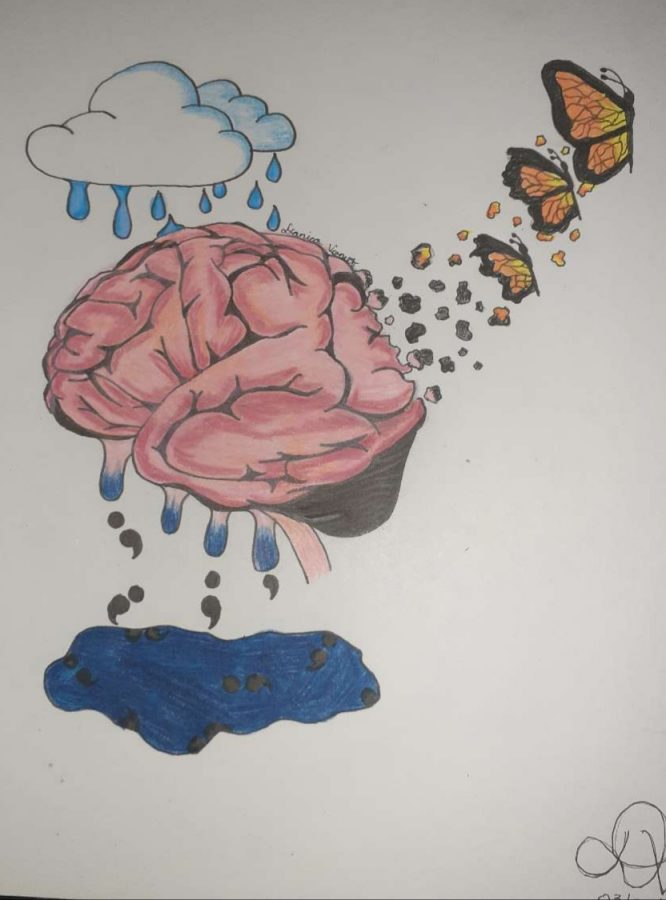COVID-19: A Disease of the Body and Mind
Photo by Danica Vernet
As mental health crumbled during the long period of closures and confinement, depression and sadness became more prevalent.
June 1, 2021
The unconventional nature of this school year has been challenging for teens nationwide. Adolescents across the US have had to deal with unimaginable circumstances between balancing online/hybrid models of learning while dealing with a pandemic. The social lives of teens have also been greatly impacted, which is a factor in the declining mental health of young people this year.
“By nature, we are social beings. We crave contact and are intended to live in relationships and to be a part of society, which is where we develop thoughts and ideas about ourselves and the world around us. Through relationships, we gain knowledge and learn life skills outside of those we learn at home,” said Barnstable High School adjustment counselor Lauren Anthony.
A few symptoms of depression in teens include a sudden change in mood or behavior, a hard time falling asleep or staying awake, and less interest in hobbies or schoolwork in precedent to CDC.gov.
BHS school social worker Amy Kaser and counselor Meridith Wirtz addressed the importance of social interaction for teens’ well-being. “Adolescence is typically a time of increased independence from family and increased social relationship time, and teens need that for their development. There has been a lot of focus on the negative effects of this isolation,” they said in a joint email to Insight.
The Covid-19 pandemic has affected students of all ages but at the high school level, many students have struggled mentally and academically during these unprecedented times.
“I was lonely only being able to contact people through phones. Hybrid absolutely sucked because for one, computers didn’t always work and the internet isn’t always reliable. I don’t learn as well online as in person in terms of questions. It’s annoying to ask questions in front of everyone, I’m a shy person.” said an anonymous junior girl.
Finding resources whenever one becomes aware they might need help is always suggested by school counselors. Talking to a person you trust can be a very positive step in hopes of removing the stigma behind asking for help.
“If the feelings of anger, worry, or sadness become overwhelming or go on for a long period of time, and/or are combined with significant changes in sleep patterns, eating habits, a loss of interest in pleasurable activities or withdrawal from others,” said Wirtz and Kaser, they both recommended finding resources for help. “It is definitely time to seek support from a trusted adult.”


